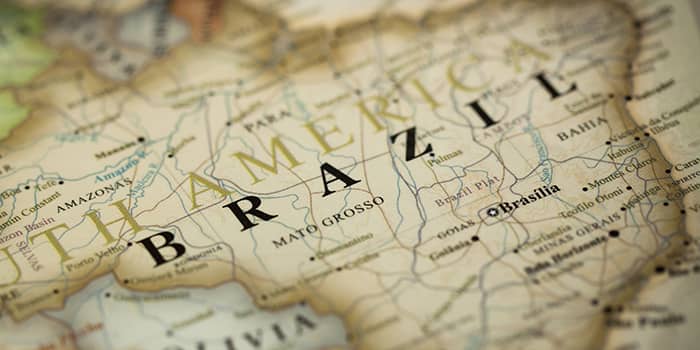Global leaders in sports betting have joined forces to establish a new entity in Brazil, the Brazilian Institute of Responsible Gaming (IBJR), seeking to contribute to the ongoing discussion and development of the gambling market in the Latin American country.
‘Collaborate with All Sectors of Society’
The establishment of the new body focused on responsible gaming comes ahead of the upcoming regulation of the sports betting market which is technically called “fixed odds betting” in Brazil. The Federal Government is expected to introduce a new regulatory framework based on law 13.756/18.
Elected president of IBJR, André Gelfi, outlined the new body’s mission “to collaborate with all sectors of society that want to learn more about the industry and understand how it can be harmoniously integrated into the Brazilian economy, as it has in other countries.”
We want to help build a safe regulatory environment for customers while financing the public sector, and creating a sustainable operating environment for companies.
André Gelfi, president of IBJR
Gelfi then noted that IBJR members have seen successful and not-so-successful regulatory regimes and accumulated enough expertise in the field to help the government define the rules for the national market.
With bet365, Flutter Entertainment, Betsson Group, Betway Group, Yolo Group, Netbet Group, KTO Group, and Rei do Pitaco as founding members, the newly-established IBJR has representation from operators active in more than 100 countries.
Sensitive Aspects Require Responsible Treatment
Speaking about markets with successful regulation, Gelfi added that in these countries, “sports betting is seen as a source of entertainment that helps preserve the integrity [of the] sport,” adamant that “the sector’s sensitive aspects, such as compulsive gambling and money laundering,” should be addressed “in a forceful, logical and responsible manner.”
And while the country’s continental dimensions are considered a challenge for regulation, the IBJR believes the size of Brazil should not be viewed as a constraint and is eager to provide a meaningful contribution to the technical aspects of regulation based on the comprehensive experience and global expertise of its members.
“No other country has enjoyed such a favorable environment for the construction of a successful regulation that can be an example for the world,” Gelfi continued, urging the government to use “aspects of countries that have successfully regulated and adapt them to the local reality,” certain that the availability of clear and demanding compliance rules will set the local market on strong footing.
The legal director of IBJR, Rafael Marcondes, commented on the importance of regulation, comparing Brazil with the US as both countries legalized sports betting in 2018. Unlike in the US, where “regulation has been happening quickly… and bringing positive results, … Brazil has fallen behind, allowing the proliferation of companies that are not committed to responsible gaming, which jeopardizes the credibility of the market without providing minimum guarantees to consumers,” Marcondes concluded.


